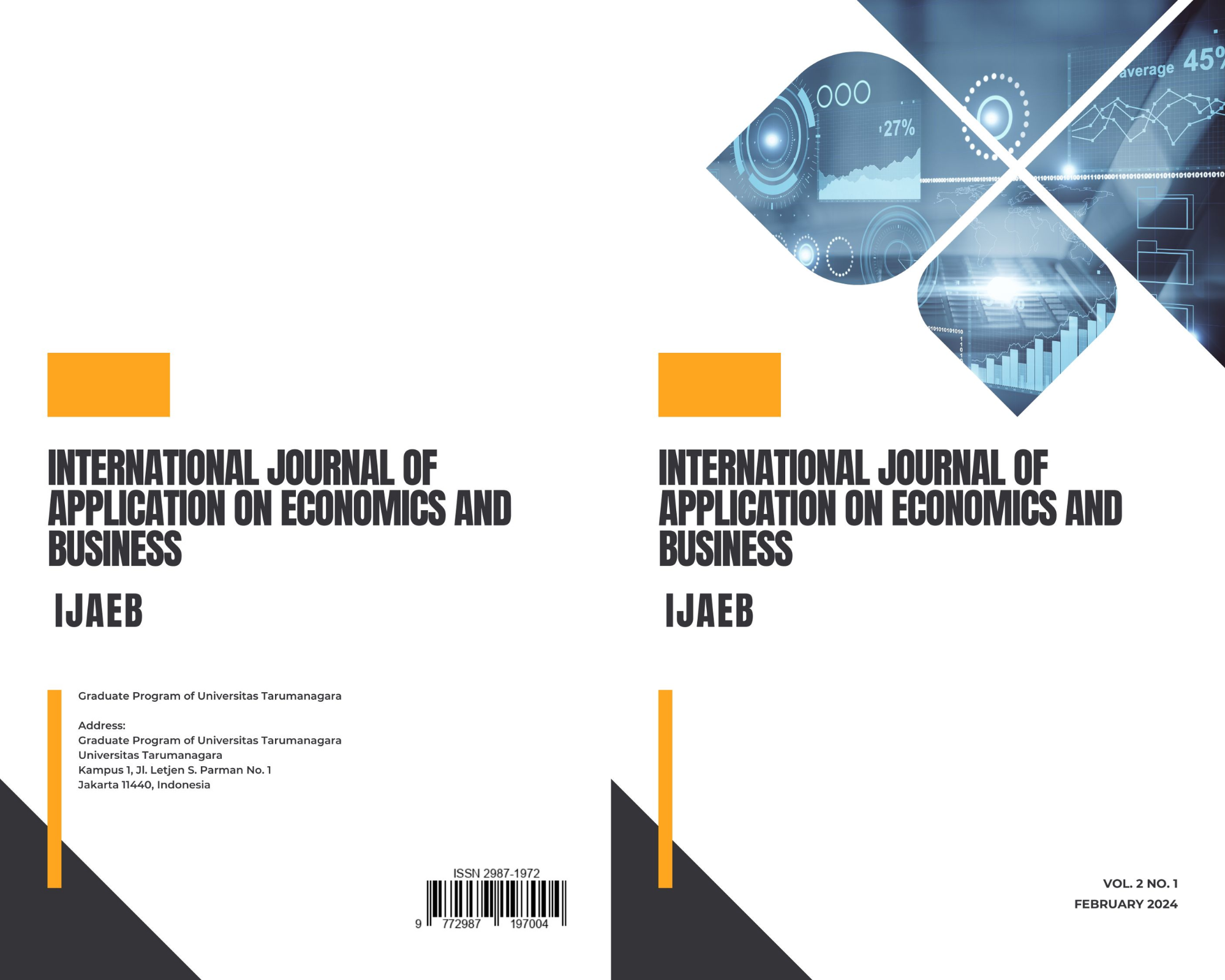THE INFLUENCE OF MENTAL HEALTH, EMOTIONAL INTELLIGENCE, AND LEADERSHIP ON EMPLOYEE PERFORMANCE
Main Article Content
Abstract
The purpose of this research is to determine the influence of mental health, emotional intelligence, and leadership on employee performance at PT. XYZ. Researchers distributed questionnaires to all employees working at PT. XYZ with a sample size of 100 respondents. The research method used in this research is a quantitative research method using saturated sampling techniques. The data analysis method in this research uses Structural Equation Modeling (SEM), which is processed with SmartPLS 3.0 Software. The results of this research show that mental health, emotional intelligence, and leadership have a positive and significant effect on employee performance at PT. XYZ. The results of this research are expected to provide real benefits for employees at PT. XYZ, and this benefit is very important because it can solve various problems related to mental health, emotional intelligence and leadership on employee performance. Companies can take steps to improve mental health, such as providing mental health programs, work-life balance training, or psychological support resources. Companies can integrate emotional intelligence training in employee development programs to improve managerial and interpersonal skills. Companies must strive to pay special attention to developing leadership skills, either through training, mentoring, or leadership development programs so that they will improve overall employee performance.
Article Details
Section

This work is licensed under a Creative Commons Attribution-NonCommercial-ShareAlike 4.0 International License.
This journal provides immediate open access to its content on the principle that making research freely available to the public supports a greater global exchange of knowledge.
IJAEB by Graduate Program of Universitas Tarumanagara is licensed under a Creative Commons Attribution-NonCommercial-ShareAlike 4.0 International License.. Permissions beyond the scope of this license may be available at https://journal.untar.ac.id/index.php/ijaeb
References
Abubakar, A. M., Elrehail, H., Alatailat, M. A., & Elcy, A. (2019). Knowledge management, decision-making style and organizational performance. Journal of Innovation and Knowledge, 4, 104-114. https://doi.org/10.1016/j.jik.2017.07.003
Al, A. D., & Anil, I. (2016). The comparison of the individual performance levels between full-time and part-time employees: the role of job satisfaction. Procedia-Social and Behavioral Sciences, 235, 382-391. https://doi.org/10.1016/j.sbspro.2016.11.048
Allan, B. A., Dexter, C., Kinsey, R., & Parker, S. (2018). Meaningful work and mental health: Job satisfaction as a moderator. Journal of Mental Health, 27(1), 38-44. doi: 10.1080/09638237.2016.1244718
Eliyana, A., & Ma’arif, S. (2019). Job satisfaction and organizational commitment effect in the transformational leadership towards employee performance. European Research on Management and Business Economics, 25(3), 144-150. https://doi.org/10.1016/j.iedeen.2019.05.001
Goh, E., & Kim, H. J. (2021). Emotional Intelligence as a Predictor of Academic Performance in Hospitality Higher Education. Journal of Hospitality and Tourism Education, 33(2), 140-146. https://doi.org/10.1080/10963758.2020.1791140
Gul, H., Usman, M., Liu, Y., Rehman, Z., & Jebran, K. (2018). Does the effect of power distance moderate the relation between person environment fit and job satisfaction leading to job performance? Evidence from Afghanistan and Pakistan. Future Business Journal, 4(1), 68-83. https://doi.org/10.1016/j.fbj.2017.12.001
Ilyas, Y. (2005). Kinerja teori, penilaian dan penelitian. Depok: Badan Penerbit FKM UI.
Jen, V., & Andani, K. W. (2021). Pengaruh kepemimpinan, pengembangan karir, dan kompensasi terhadap kinerja karyawan PT. Bank Commonwealth Jakarta. Jurnal Manajerial dan Kewirausahaan, 3(2), 509-517. https://doi.org/10.24912/jmk.v3i2.11898
Kader, N., Elhusein, B., Elhassan, N. M., Alabdulla, M., Hammoudeh, S., & Hussein, N. R. (2021). Burnout and job satisfaction among psychiatrists in the Mental Health Service, Hamad Medical Corporation, Qatar. Asian Journal of Psychiatry, 58, 1-6. https://doi.org/10.1016/j.ajp.2021.102619
Kuswana, W. S. (2014). Ergonomi dan kesehatan dan keselamatan kerja. Bandung: PT Remaja Rosdakarya.
Lu, X., Yu, H., & Shan, B. (2022). Relationship between Employee Mental Health and Job Performance: Mediation Role of Innovative Behavior and Work Engagement. International Journal of Environmental Research and Public Health, 19(11), 1-12. https://doi.org/10.3390/ijerph19116599
Mangkunegara, A. P. (2016). Manajemen sumber daya manusia perusahaan. Bandung: Remaja Rosdakarya.
Notosudirjo, M., & Latipun. (2005). Kesehatan mental, konsep, dan penerapan. Malang: UMM Press.
Ouyang, Z., Sang, J., Li, P., & Peng, J. (2015). Organizational justice and job insecurity as mediators of the effect of emotional intelligence on job satisfaction: A study from China. Personality and Individual Differences, 76, 147-152. https://doi.org/10.1016/j.paid.2014.12.004
Pieper, J., & Uden, M. V. (2006). Religion in coping and mental health care. New York: Yord University Press.
Pramudyo, A. (2013). Implementasi Manajemen Kepemimpinan dalam Pencapaian Tujuan Organisasi. Jurnal Bisnis, Manajemen, dan Akuntansi, 1(2), 49-61.
Rivai, V. (2012). Manajemen sumber daya manusia untuk perusahaan. Jakarta: RajaGrafindo Persada.
Rivai, V., & Murni, S. (2009). Education management analisis teori dan praktek. Jakarta: Rajawali Press.
Saptono. (2011). Dimensi-dimensi pendidikan karakter: wawasan, strategis, dan langkah praktis. Jakarta: Erlangga.
Scanlan, J. N., & Hazelton, T. (2019). Relationships between job satisfaction, burnout, professional identity and meaningfulness of work activities for occupational therapists working in mental health. Australian Occupational Therapy Journal, 66(5), 581-590. https://doi.org/10.1111/1440-1630.12596
Setyowati. (2013). Organisasi dan kepemimpinan modern. Yogyakarta: Graha Ilmu.
Wang, C. Y., Lin, Y. K., Chen, I. H., Wang, C. S., Peters, K., & Lin, S. H. (2022). Mediating effect of job performance between emotional intelligence and turnover intentions among hospital nurses during the COVID-19 pandemic: A path analysis. Collegian, 30(2), 247-253. https://doi.org/10.1016/j.colegn.2022.09.006
Wen, J., Huang, S. S., & Hou, P. (2019). Emotional intelligence, emotional labor, perceived organizational support, and job satisfaction: A moderated mediation model. International Journal of Hospitality Management, 81, 120-130. doi: 10.1016/j.ijhm.2019.01.009
Wirawan. (2013). Kepemimpinan: teori, psikologi, perilaku organisasi, aplikasi, dan penelitian. Jakarta: RajaGrafindo Persada.
Woolfolk, A., Hughes, M., & Walkup, V. (2008). Psychology in education. New York: Pearson Education Limited.
Yukl, G. (2008). How leaders influence organizational effectiveness. The Leadership Quarterly, 19(6), 708-722. https://doi.org/10.1016/j.leaqua.2008.09.008

